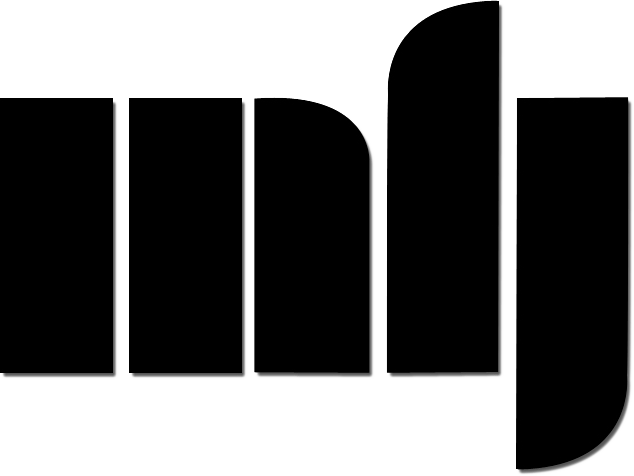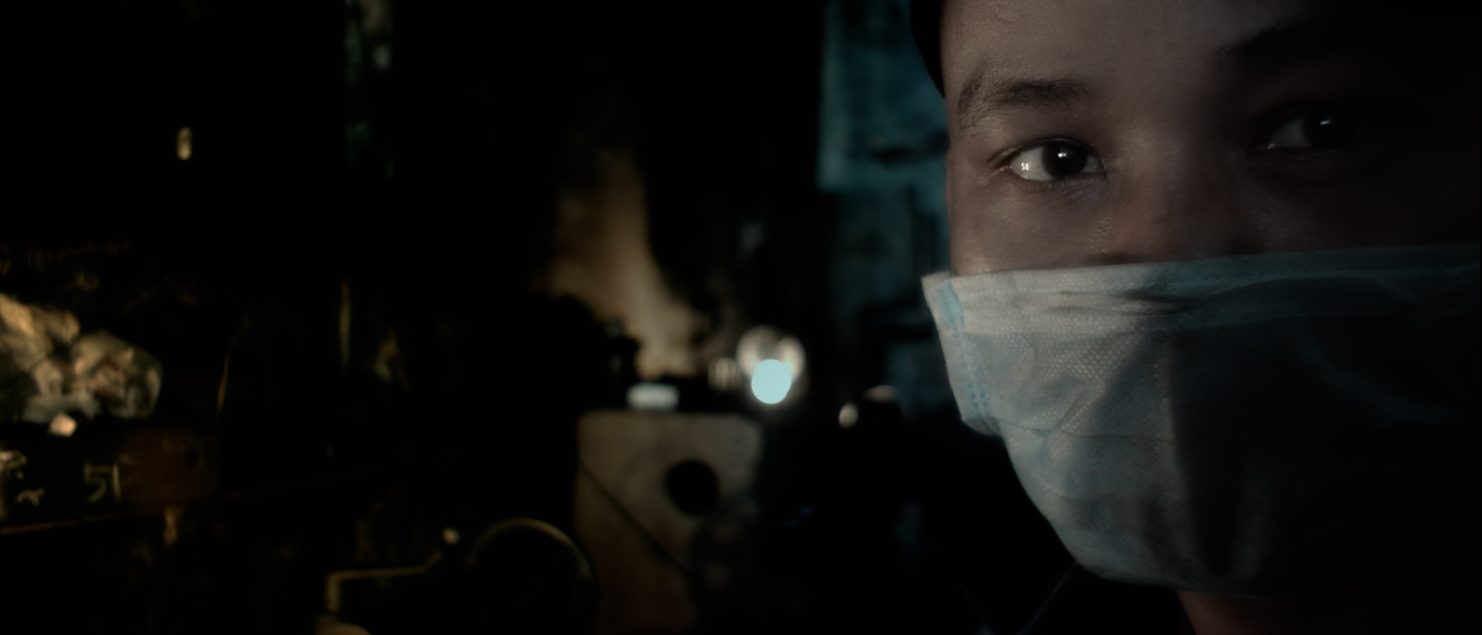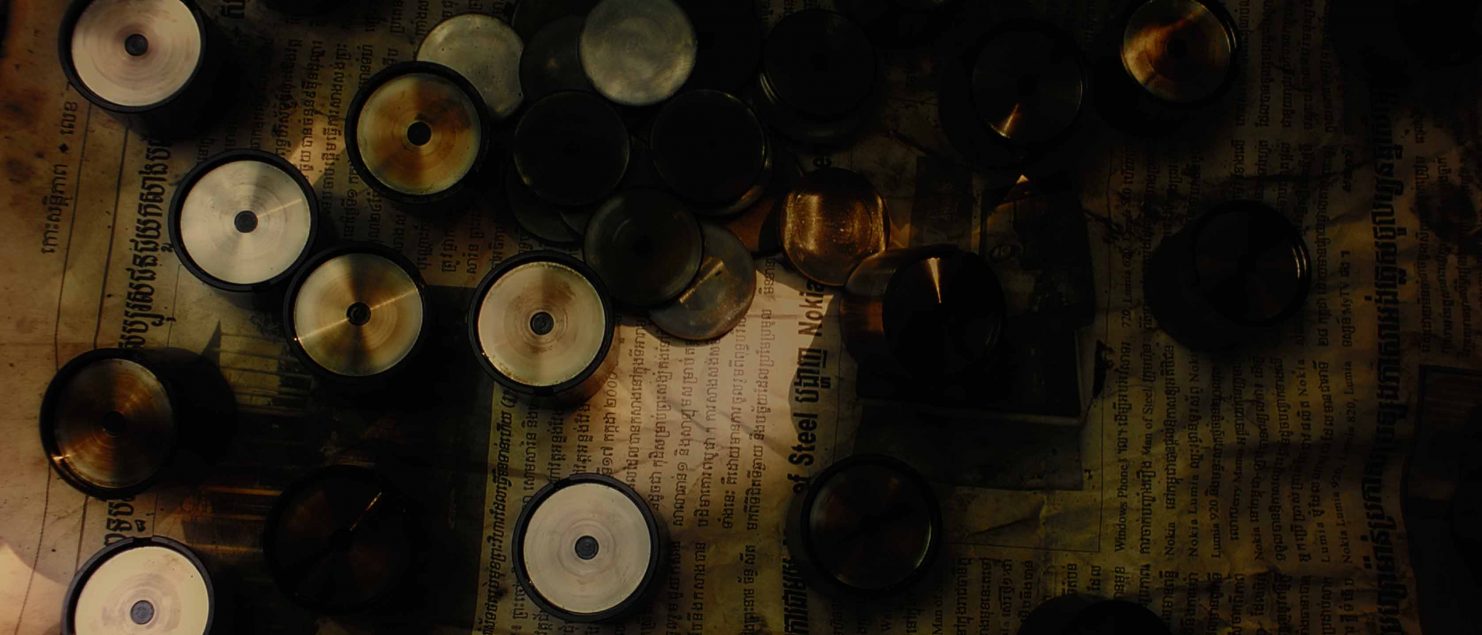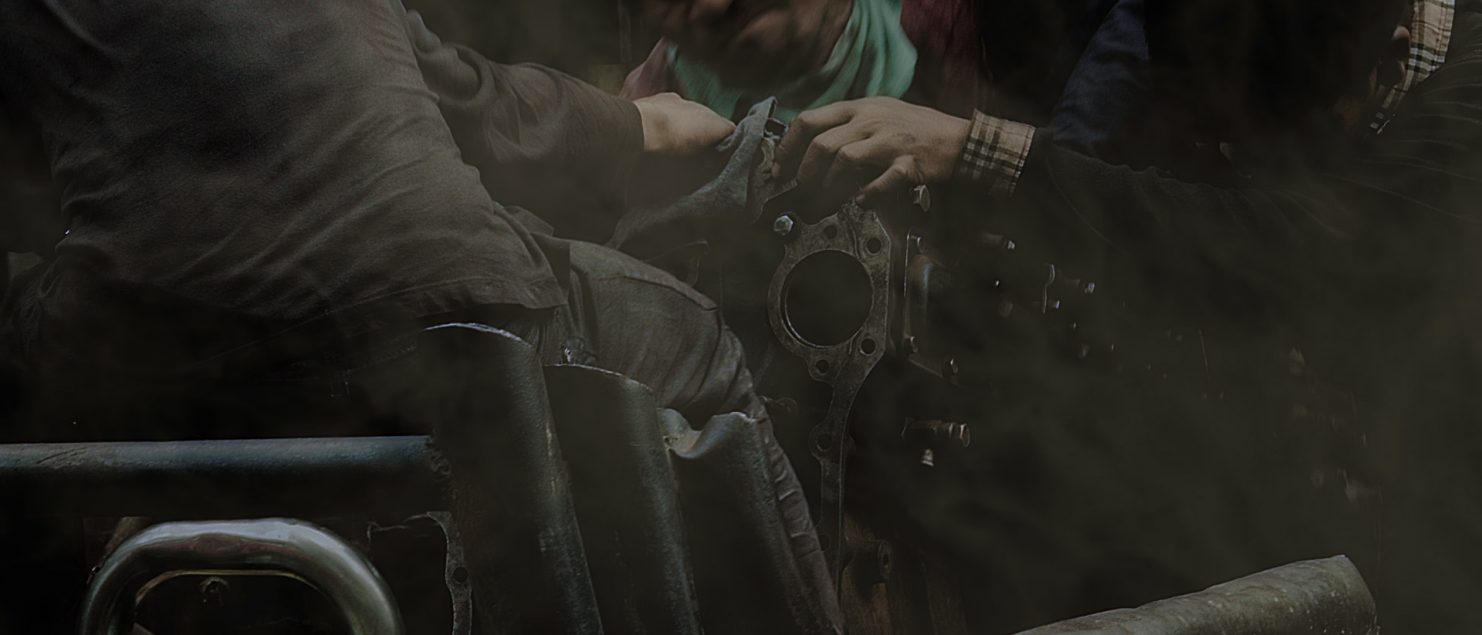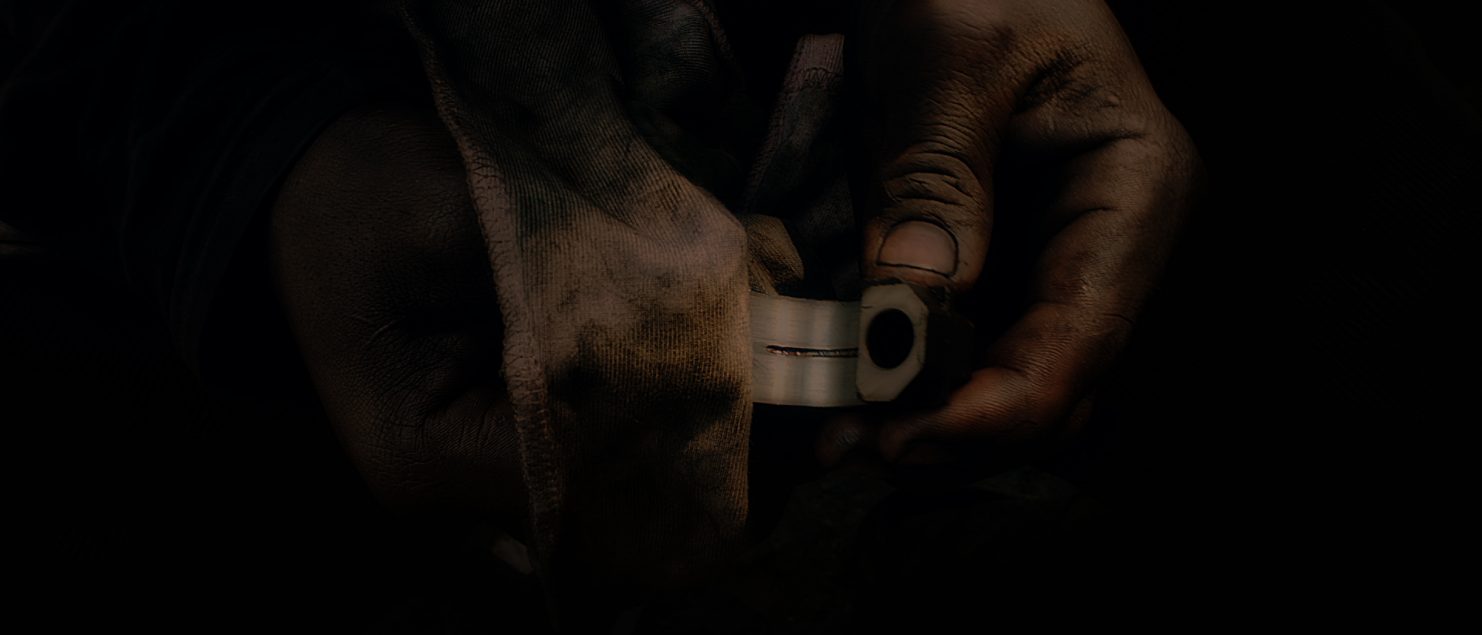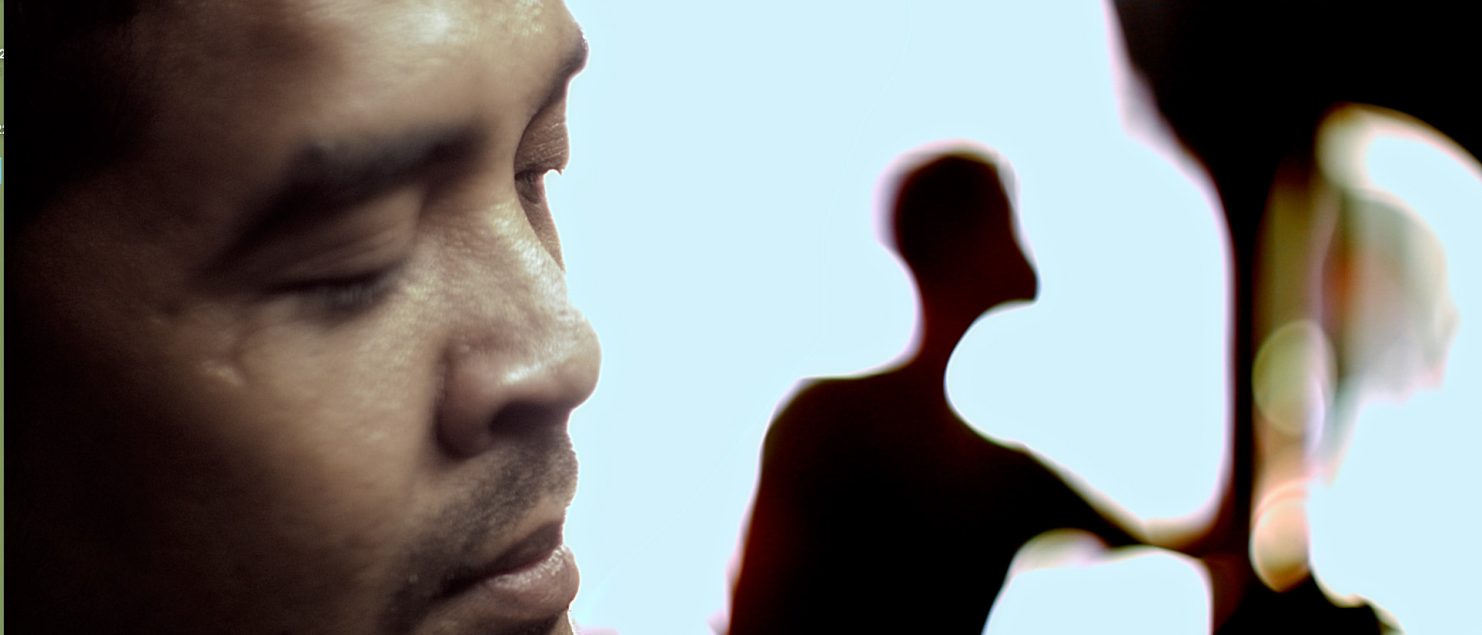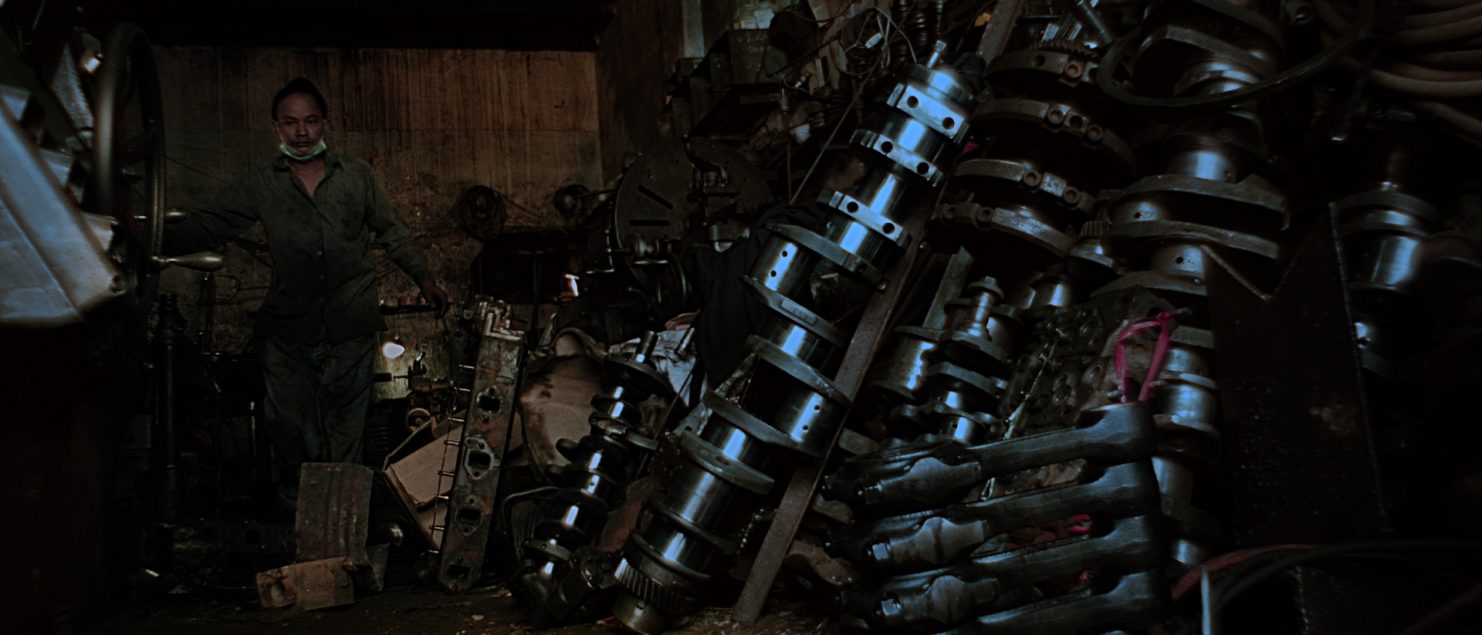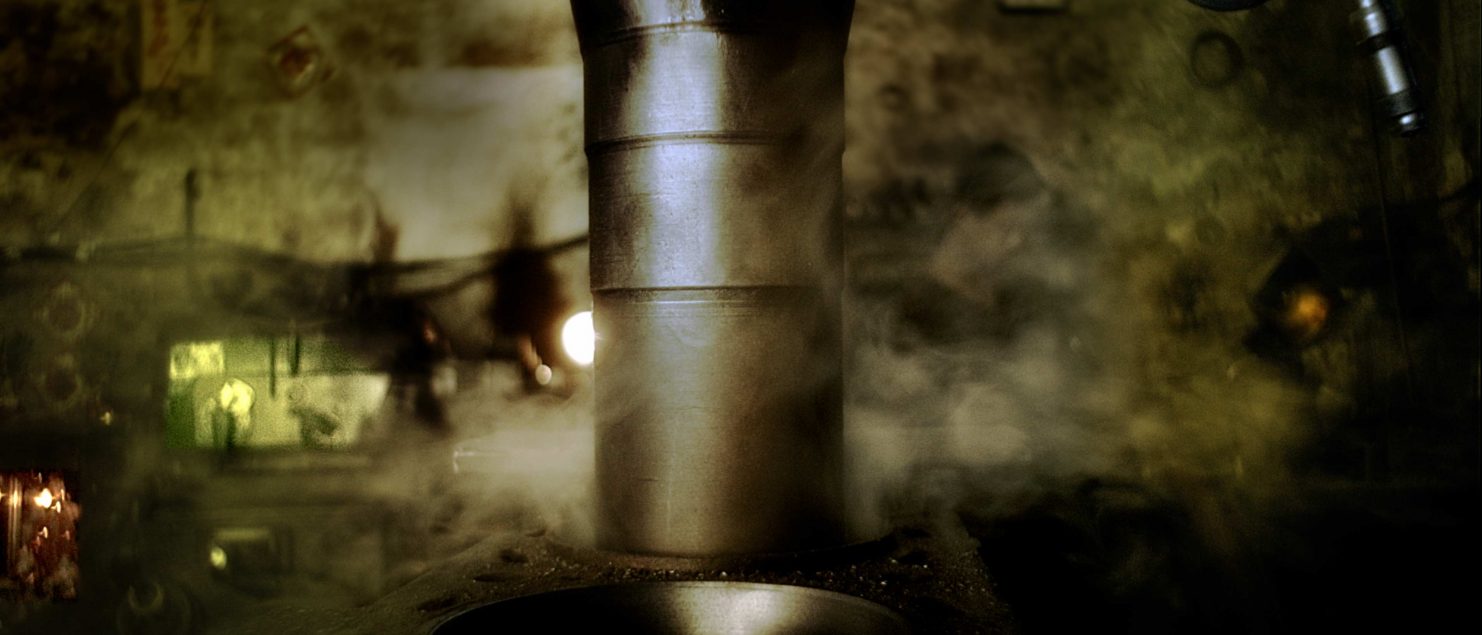The Mechanics
Directed by Christoph Janetzko
Sound by Makin Fung Bin Fai
The Mechanics (2021, Germany, 23 minutes) by one of Germany’s most consistent filmmakers is a marvel. It is a cinematographic jewel, a superior technical achievement infused with atmosphere and a film that crosses genre boundaries.


As a documentary, The Mechanics focuses on the clandestine and almost vanishing world of craftsmanship in the labyrinthine alleyways of Phnom Penh. Hands besmirched by oil clean, drill and assemble Mekong boat motors, highlighting the elegance of expertise and manual dexterity, while just feet away skilled hands trim beards, shave necks and foreheads and define hairlines. These focused activities are trapped between traffic entanglements and the last remnants of public open spaces, interspersed with delicately arranged sites for Confucian worship, havens of tranquillity in the jumble. The combination is a fascinating document of a world exotic to the Western viewer. But for the filmmaker it is familiar. Janetzko spent long stretches of his professional life working in South East Asia as a cinematographer and director. But The Mechanics is not a straightforward documentary. Questions raised and conflicts suggested in the images remain open and unresolved, a broader overview is not offered, and hardly any information is provided. At the heart of the film is a study of precision in the midst of apparent chaos.
As an experimental film, the glory of light dominates over jagged rhythms of montage and the unadulterated beauties of all-over composition. Initially the slow flow of images is punctuated by bright white flashes and the familiar cracking and sizzling of the hand-held welder. In contrast, periods of blackness interrupt the next series of images. Details of the mechanics’ welding activity follows, burning out the digital image with rapid bursts of pure whiteness, which vaguely reminds a viewer of the rhythmic strobes of the Light Show. The images are indeed dancing-resting-dancing. Janetzko makes use of an armory of contemporary techniques, reflecting a deep familiarity with the arcane mysteries of digital video technology, which matches the analog skills in the mechanics’ oil-stained hands. It is a breathtaking visual statement.

As a masterpiece of scoring, the film is integrated with a highly developed audio collage. As in his earlier films River Colors [1994, 60 mins] and Sisom [1995, 30 mins], Janetzko collaborated with Hong Kong musician / sound designer Makin Fung Bin Fai. The richness and complexity of audio effects and the musical fragments lift the film to another level. Though the soundtrack could stand alone as a work of “musique concrète,” it both enhances and is enhanced by the images.
The Mechanics may be compared in tone to films by Bruce Conner such as Valse Triste (1977) or Take the 5:10 to Dreamland (1978). But where Conner’s work is tinged with nostalgia, reminiscent of his childhood in the American 1950s—perhaps a Paradise Lost—The Mechanics is set in the harsher reality of the (pre-Covid-19) present, a time when dirty hands and working in open storefronts had largely been replaced by semiconductors and assembly in sterile white labs. But in all this, no sadness, no overwhelming emotion can be sensed. The film often looks dark, but there is no hint of the regret implicit in Conner’s work.The mechanics often sing quietly to themselves: they seem to enjoy their work.
The Mechanics is aligned with earlier works by Janetzko. River Colors [1995, 60 minutes] visits the khlongs (canals) of Nontaburi (northern Bangkok), now seriously threatened with regular flooding caused by climate change. The focus on the people and cinematographic language and editing techniques trigger comparison with The Mechanics. Arnos Tonlabor (Arno’s Sound Lab) [2010, 8 minutes.] is a visit to the studio of film sound engineer Arno Wilms. In almost constant close-ups documentary footage is transformed into abstract impressions with the sounds generated by Wilms’s machines, again a kind of musique concrète. The film is itself an homage to analog sound techniques with visual and auditory rhythms playing against one another. One can see The Mechanics as a synthesis and development of the two earlier works. The Mechanics is a sparkling jewel, the gentle flow of a song, a requiem to a changing world.

Watch films by Janetzko online.
ALL IMAGES Christoph Janetzko, The Mechanics (2021), frame enlargements. Courtesy the artist.
Review by Ingo Petzke
Disclaimer: This page is for your personal use only. It is not to be duplicated, shared, published or republished in whole or in part, in any manner or form, without the explicit permission of the publisher, author, and copyright holder(s) of the images.
